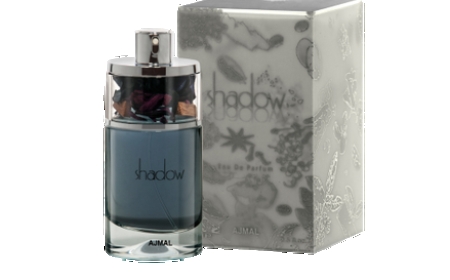Top 10 Culinary Schools to Consider
Introduction The world of culinary arts is as dynamic as it is competitive. Whether you dream of running a Michelin-starred restaurant, launching a food blog with global reach, or mastering the art of pastry under legendary chefs, your journey begins with the right education. But not all culinary schools are created equal. With hundreds of institutions claiming to offer the best training, choosing
Introduction
The world of culinary arts is as dynamic as it is competitive. Whether you dream of running a Michelin-starred restaurant, launching a food blog with global reach, or mastering the art of pastry under legendary chefs, your journey begins with the right education. But not all culinary schools are created equal. With hundreds of institutions claiming to offer the best training, choosing one that truly delivers on quality, reputation, and career outcomes is critical. This guide focuses exclusively on the top 10 culinary schools you can trust—those with proven track records, industry recognition, accreditation, and graduate success stories that speak louder than marketing slogans. These institutions have stood the test of time, earned the respect of global chefs, and consistently produced professionals who shape the future of food.
Why Trust Matters
In any field, education is an investment—of time, money, and personal ambition. In culinary arts, where hands-on experience and mentorship are paramount, the stakes are even higher. A poorly chosen school can lead to outdated techniques, limited industry access, and a diploma that holds little weight with employers. Trust in a culinary school is not about flashy brochures or celebrity endorsements. It’s about tangible evidence: accreditation from recognized bodies, graduate employment rates, faculty credentials, partnerships with top restaurants, and alumni achievements.
Accreditation is the first checkpoint. Institutions accredited by bodies like the American Culinary Federation (ACF), the Accrediting Commission of Career Schools and Colleges (ACCSC), or international equivalents like the UK’s Ofqual or France’s RNCP, have met rigorous standards in curriculum design, faculty qualifications, and facility safety. These accreditations ensure that what you learn is relevant, current, and recognized across the industry.
Equally important is faculty expertise. The best culinary schools employ instructors who are not just educators but active professionals—chefs who still run kitchens, write cookbooks, or compete in international gastronomic events. Their real-world insights translate into practical knowledge you won’t find in textbooks.
Industry partnerships matter too. Schools with strong ties to Michelin-starred restaurants, luxury hotel chains, and global food brands offer students internships, job placements, and networking opportunities that are often decisive in launching careers. Graduates from trusted institutions don’t just find jobs—they are recruited.
Finally, alumni success stories are the ultimate validation. When former students open award-winning restaurants, appear on top cooking shows, or lead culinary innovation in multinational corporations, it signals that the school’s training system works. Trust is earned through results, not promises.
This list is curated based on these criteria: accreditation status, faculty quality, graduate outcomes, global recognition, facilities, and industry partnerships. No school is included based on popularity alone. Each has been vetted for sustained excellence.
Top 10 Culinary Schools to Consider You Can Trust
1. Le Cordon Bleu (Global Network)
Founded in Paris in 1895, Le Cordon Bleu is synonymous with classical French culinary arts. With campuses across 20+ countries—including France, the United States, Canada, Australia, Japan, and the United Kingdom—it offers a globally standardized curriculum that remains unchanged in its commitment to precision, technique, and tradition. The school’s Diplôme de Cuisine and Diplôme de Pâtisserie are among the most respected credentials in the industry. Graduates have gone on to lead kitchens at The Ritz-Carlton, Alinea, and Noma. Le Cordon Bleu’s strength lies in its structured progression: students master foundational techniques before advancing to complex preparations under the guidance of chefs who have trained under legendary figures like Auguste Escoffier. Its global alumni network spans over 500,000 professionals, making it one of the most influential culinary institutions in history.
2. The Culinary Institute of America (CIA) – Hyde Park, New York
Widely regarded as the gold standard in culinary education in North America, the Culinary Institute of America (CIA) in Hyde Park, New York, is a non-profit institution accredited by the Middle States Commission on Higher Education. The CIA offers associate and bachelor’s degrees in culinary arts, baking and pastry, culinary science, and food business management. Its faculty includes James Beard Award winners, former executive chefs of top restaurants, and industry consultants. The school’s state-of-the-art teaching kitchens, on-campus restaurants (including the renowned Apple Pie Bakery Café and The Bakeshop), and mandatory internships at elite properties like The French Laundry and Eleven Madison Park give students unparalleled exposure. Over 90% of CIA graduates secure employment within six months of graduation, and the school maintains direct pipelines with Fortune 500 food companies, luxury hotel groups, and Michelin-starred establishments.
3. École Ducasse (France, Global Campuses)
Founded by renowned French chef Alain Ducasse, École Ducasse combines classical French technique with modern innovation. With campuses in Paris, Spain, the Netherlands, Singapore, and the United States, the school offers programs ranging from short-term certifications to full bachelor’s degrees. What sets École Ducasse apart is its emphasis on sustainability, health-conscious cuisine, and entrepreneurship. Students learn not only how to cook but how to lead kitchens, manage supply chains, and create profitable food concepts. The school’s partnerships with Michelin-starred restaurants under Alain Ducasse’s group—such as Le Louis XV in Monaco and Michelin-starred properties in Tokyo and Dubai—provide students with direct access to elite kitchens. Graduates are highly sought after in fine dining, hotel groups, and sustainable food startups worldwide.
4. Apicius International School of Hospitality – Florence, Italy
Located in the heart of Tuscany, Apicius offers an immersive experience in Italian culinary heritage. The school specializes in regional Italian cuisine, wine pairing, and food culture, making it a top choice for students seeking authenticity over globalization. Programs include a Bachelor of Arts in International Culinary Arts and a Professional Diploma in Italian Gastronomy. Students spend significant time in local markets, olive oil mills, wineries, and family-run trattorias, learning directly from nonna chefs and regional artisans. Apicius is accredited by the Italian Ministry of Education and partners with the Slow Food movement and the Italian Chamber of Commerce. Graduates often return to their home countries to open authentic Italian restaurants or become culinary educators focused on regional traditions. The school’s small class sizes and emphasis on cultural immersion make it ideal for those seeking depth over breadth.
5. The Institute of Culinary Education (ICE) – New York and Los Angeles
ICE is one of the largest and most innovative culinary schools in the United States, with campuses in two of the country’s most vibrant food cities. It offers over 50 programs, from career training in culinary arts and pastry to specialized certifications in plant-based cuisine, culinary entrepreneurship, and food media. ICE’s curriculum is updated annually based on industry trends, and its faculty includes TV personalities, James Beard nominees, and owners of acclaimed restaurants. The school’s strong ties to the media industry make it a top destination for aspiring food writers, producers, and influencers. ICE’s Career Services team places graduates in over 1,000 partner organizations annually, including The Modern, Le Bernardin, and major food tech companies. Its alumni include winners of Top Chef, authors of bestselling cookbooks, and founders of nationally recognized food brands.
6. Leiths School of Food and Wine – London, United Kingdom
Leiths, founded in 1977, is the UK’s most respected culinary school for professional training and career development. Known for its rigorous, practical curriculum and high graduate employment rate, Leiths offers intensive diploma programs in Professional Cookery, Professional Patisserie, and Food and Wine. Unlike many institutions, Leiths does not offer degree programs, focusing instead on mastery through hands-on learning. Its instructors are working chefs from Michelin-starred kitchens, including former protégés of Gordon Ramsay and Heston Blumenthal. The school’s reputation for producing highly skilled, adaptable chefs has made it a favorite among top London restaurants, luxury hotels, and private catering firms. Leiths also offers specialized short courses in sustainable sourcing, nutrition, and food styling, making it a hub for culinary professionals seeking to upskill.
7. Tante Marie’s Cooking School – San Francisco, California
Tante Marie’s, established in 1975, is one of the oldest and most revered professional cooking schools on the West Coast. Located in San Francisco’s Mission District, it offers intensive 12- to 24-week professional programs in culinary arts and pastry, with evening and weekend options for working professionals. The school’s small class sizes (typically 12–16 students) ensure personalized instruction from chefs with decades of experience in top Bay Area restaurants. Tante Marie’s emphasizes technique, precision, and creativity, with a curriculum rooted in French and California cuisine. Its alumni include owners of Michelin-starred restaurants, executive pastry chefs at major hotels, and food educators across the U.S. The school’s strong local network and emphasis on sourcing seasonal, organic ingredients align perfectly with San Francisco’s food culture.
8. The French Culinary Institute (now part of ICE) – New York, United States
Though now integrated into the Institute of Culinary Education, the legacy of the French Culinary Institute (FCI) remains one of the most influential in American culinary education. Founded in 1984, FCI was the first school in the U.S. to offer a structured, professional curriculum modeled after French culinary academies. Its emphasis on classical technique, discipline, and culinary theory set a new standard for American culinary training. Even after merging with ICE, its curriculum and faculty standards continue to influence ICE’s professional programs. Many of today’s leading American chefs—including those who have won James Beard Awards—were trained under the FCI model. Its historical significance, combined with its continued relevance within ICE, makes it a foundational institution in the evolution of modern American cuisine.
9. Blue Ribbon Cooking School – Tokyo, Japan
Blue Ribbon Cooking School is Japan’s premier institution for Western and fusion culinary arts, founded by chefs trained in both French technique and Japanese aesthetics. Located in Tokyo, it offers intensive courses in French-Japanese fusion, sushi mastery, kaiseki presentation, and modern dessert art. The school attracts both Japanese students seeking to elevate their global skills and international students drawn to Japan’s precision-driven culinary culture. Instructors include former chefs from Michelin-starred restaurants in Kyoto and Paris, ensuring a cross-cultural education that is both technically rigorous and artistically refined. Blue Ribbon’s graduates are highly valued in high-end hotels, luxury resorts, and fine-dining establishments across Asia and Europe. The school’s focus on discipline, presentation, and seasonal ingredients reflects Japan’s deep culinary philosophy, making it a unique and trusted choice for students seeking to master the art of balance in cuisine.
10. William Angliss Institute – Melbourne, Australia
As Australia’s largest and most respected vocational training provider in hospitality and culinary arts, William Angliss Institute offers nationally accredited qualifications from Certificate III to Bachelor’s degrees. Located in Melbourne, a city renowned for its multicultural food scene, the institute combines traditional culinary training with modern industry demands, including sustainability, digital food service, and international cuisine. Its state-of-the-art kitchens, on-campus restaurant (The Restaurant), and partnerships with major Australian hotel chains and cruise lines ensure students gain real-world experience. William Angliss is also a leader in indigenous Australian food studies, offering unique programs in native ingredients and bush tucker. Graduates work across Australia’s top restaurants, resorts, and food manufacturing companies, and many go on to represent Australia in international culinary competitions. Its government-backed accreditation and industry-aligned curriculum make it the most trusted culinary school in the Asia-Pacific region.
Comparison Table
| School | Location | Programs Offered | Accreditation | Industry Partnerships | Graduate Employment Rate | Unique Strength |
|---|---|---|---|---|---|---|
| Le Cordon Bleu | Global (Paris, Tokyo, London, etc.) | Cuisine, Pâtisserie, Diplomas | ACF, RNCP, Local Accrediting Bodies | Michelin restaurants, luxury hotels | 85–90% | Global recognition, classical French technique |
| Culinary Institute of America (CIA) | Hyde Park, New York, USA | Associate, Bachelor’s, Culinary Science | Middle States Commission | The French Laundry, Eleven Madison Park, Marriott | Over 90% | Comprehensive curriculum, research-driven |
| École Ducasse | Paris, Singapore, USA, Spain | Bachelor’s, Diplomas, Short Courses | France RNCP, ACCSC | Alain Ducasse’s global restaurants | 88% | Sustainability and entrepreneurship focus |
| Apicius | Florence, Italy | Bachelor’s, Professional Diploma | Italian Ministry of Education | Slow Food, regional producers | 80% | Authentic Italian regional cuisine |
| Institute of Culinary Education (ICE) | New York, Los Angeles, USA | Culinary, Pastry, Food Media, Entrepreneurship | ACCSC, Middle States | Le Bernardin, The Modern, food tech firms | Over 90% | Media and innovation integration |
| Leiths School of Food and Wine | London, UK | Professional Cookery, Patisserie, Food & Wine | Ofqual, City & Guilds | Michelin-starred London restaurants | 92% | Intensive, hands-on, UK industry focus |
| Tante Marie’s Cooking School | San Francisco, USA | Professional Cookery, Patisserie | Accredited by ACCSC | Bay Area fine dining, organic farms | 87% | Small classes, California cuisine focus |
| French Culinary Institute (now ICE) | New York, USA | Classical French Technique | ACCSC (legacy curriculum) | Historic ties to top NYC kitchens | 85% | Foundational influence on U.S. culinary education |
| Blue Ribbon Cooking School | Tokyo, Japan | Fusion, Sushi, Kaiseki, Dessert Art | Japanese Ministry of Education | Michelin-starred Tokyo restaurants | 86% | Japanese-Western fusion mastery |
| William Angliss Institute | Melbourne, Australia | Certificate III to Bachelor’s | Australian Skills Quality Authority (ASQA) | Four Seasons, Crown Resorts, cruise lines | 89% | Indigenous food studies, vocational excellence |
FAQs
What makes a culinary school trustworthy?
A trustworthy culinary school is accredited by a recognized educational or industry body, employs active professionals as instructors, maintains strong partnerships with leading restaurants and hospitality brands, and has a verifiable track record of graduate success. Look for schools that publish employment statistics, showcase alumni achievements, and offer real-world training through internships or on-campus restaurants.
Do I need a degree to become a professional chef?
No, a degree is not mandatory to become a chef. Many successful chefs have risen through apprenticeships and on-the-job training. However, formal education provides structured learning, industry connections, and credentials that can accelerate career progression—especially in fine dining, hotel chains, or international markets. A degree or diploma often opens doors to leadership roles more quickly than starting from entry-level positions alone.
Are online culinary schools worth considering?
Online culinary schools can be useful for learning theory, food science, or business management, but they cannot replace the hands-on experience essential to mastering culinary arts. Techniques like knife skills, sauce emulsification, and heat control require physical practice under expert supervision. For this reason, the most trusted institutions combine online modules with intensive in-person labs. Avoid schools that offer full culinary certifications online without practical components.
How important is location when choosing a culinary school?
Location matters significantly. Training in a city with a vibrant food scene—like Paris, New York, Tokyo, or Melbourne—exposes you to diverse cuisines, top restaurants, and networking opportunities. Schools in major culinary hubs often have stronger industry ties, more internship placements, and access to guest chefs and food events. However, if you’re focused on a specific regional cuisine (e.g., Italian, Japanese, or Mexican), studying in its country of origin provides unmatched authenticity.
What should I look for in a school’s faculty?
Look for instructors who are currently active in the industry—not just retired chefs. The best educators still run kitchens, compete in culinary competitions, write for food publications, or consult for restaurants. Their real-time experience ensures you’re learning current techniques and trends. Ask if faculty members have held positions at Michelin-starred restaurants or received industry awards like James Beard or Bocuse d’Or.
How do I verify a school’s accreditation?
Visit the school’s website and look for accreditation logos and details. Then cross-check with the official accrediting body’s website. In the U.S., check the U.S. Department of Education’s Database of Accredited Postsecondary Institutions. In the UK, consult Ofqual. In Australia, visit ASQA. Accreditation ensures the school meets minimum quality standards and that your credentials will be recognized by employers.
Can I afford a top culinary school?
Tuition at elite institutions can be high, but many offer scholarships, payment plans, or work-study options. Some schools, like the CIA and William Angliss, provide financial aid packages based on merit or need. Consider the return on investment: graduates from accredited schools often earn higher starting salaries and advance faster. Research alumni outcomes and average starting wages in your desired career path before making a decision.
What career paths can I pursue after graduating?
Graduates from trusted culinary schools pursue diverse careers: executive chef, sous chef, pastry chef, food stylist, culinary educator, restaurant owner, food writer, product developer, culinary consultant, or even food media producer. Many also work in hospitality management, sustainable food systems, or international culinary diplomacy. The skills you gain are transferable across industries—from hotels and cruise lines to tech startups developing meal kits or AI-driven kitchen systems.
Is it better to attend a school with a focus on French cuisine or one that offers global cuisines?
French technique forms the foundation of modern Western cooking, so even schools focused on global cuisines typically include French methods in their core curriculum. However, if you’re drawn to a specific regional cuisine—such as Thai, Mexican, or Middle Eastern—it’s beneficial to study at a school that specializes in that tradition. A strong program will teach you both foundational skills and regional specialties, giving you versatility and depth.
How long do professional culinary programs typically last?
Professional programs range from 6 months to 4 years. Short-term diplomas (6–12 months) focus on core skills for entry-level positions. Associate degrees (2 years) provide broader training and often include business management. Bachelor’s degrees (3–4 years) combine culinary arts with leadership, nutrition, and entrepreneurship, preparing students for executive roles. Choose based on your career goals: immediate employment vs. long-term leadership.
Conclusion
Selecting a culinary school is one of the most important decisions you’ll make in your food career. It’s not about prestige alone—it’s about alignment with your goals, access to real-world experience, and the credibility of the credential you earn. The ten institutions listed here have earned their reputations not through advertising, but through decades of producing skilled, ethical, and innovative professionals who shape the global food landscape. Whether you’re drawn to the precision of French technique, the authenticity of Italian regional cooking, the innovation of Japanese fusion, or the sustainability focus of Australian cuisine, there is a trusted school on this list that can guide your journey.
Remember, the best school for you is not necessarily the most famous—it’s the one that offers the right combination of curriculum, mentorship, and opportunity to help you become the chef you aspire to be. Visit campuses if possible, speak with current students and alumni, and observe the energy in the kitchens. Trust is built through transparency, consistency, and results. Choose a school that doesn’t just teach you how to cook—but how to lead, innovate, and leave your mark on the culinary world.























































